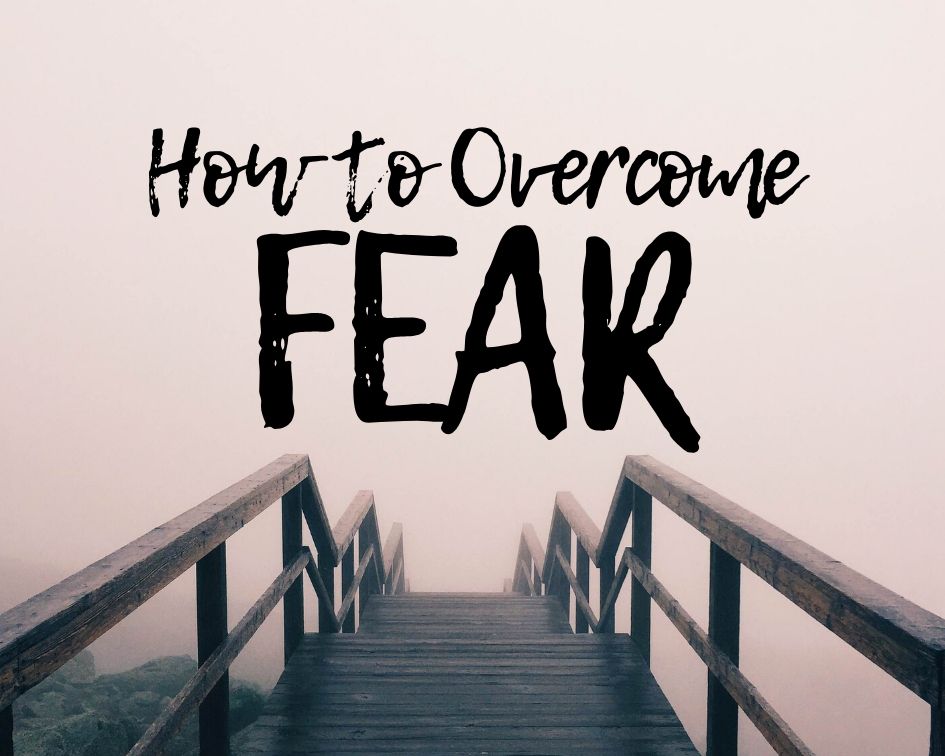Everybody’s feeling fear in their lives. There are great fears that we are very aware of and small ones that we may not even know we have.
I’ve found that knowing what fear is and how it operates toward us is really necessary, and if we don’t, it will hinder us from being what God made us to be, which implies we won’t be serving our mission in existence.
Overcoming fear may sound simpler to say than to do. It’s hard to see the way out when you’re in the thick of fear. The good news is that, because you are the root cause of your fears that means that you are the solution to them as well. None of this will be feasible, though, if you’re not ready to face your fears.
1. Define your fears by writing
There are moments that I was afraid, so I didn’t really know why. If you preserve your fears within it, you will allow your minds to govern how you feel. We all know how it turns out to be! To avoid this misunderstanding from occurring in the first place, the first move is to recognize what the concerns are.
What leaves you feeling fearful?
Rather than just thinking about such things, please write them down. When you note down your fears on paper and start questioning them, you’re forced to evaluate why you’re scared. Questions are designed to give rise to your fears and bring them to the surface.
Deep inner work is never done! But if you keep your emotions in the dark, the more frightened they will be, and the more powerless you will become.
If you have recognized the background that you equate with your worries, you would be empowered with the ability to take steps and alter them. Eventually, your fears will be smaller and smaller, and your strength will be greater and greater.
2. Exercise Gratitude
Through personal experience, I have found that at the same time you cannot feel anxiety and appreciation. They are literally at the opposite end of the continuum of human experience.
When you’re going through rough times in life, it’s easy to fall into fear. Everything’s feeling unbearable. It can be hard to keep grounded in that vibrant room.
Developing a habit of appreciation helps you not to sink in terror. It doesn’t say you’re not going to experience it again, but the hit is going to be lessened, helping you to see the lighter side of the fight (yes, it does exist).
In positive psychological research, gratitude is strongly and consistently associated with greater happiness. Gratitude makes people have more optimistic feelings, appreciate pleasant times, strengthen their wellbeing, cope with challenges, and create healthy relationships.
Those of you who feel fear realize that there’s almost always a tale tied to something that you’re scared of. Irrespective of what the narrative is, the recurring thread is, “I can’t do it.” Fear likes to hide out with the inner critic and come up with one of the worst-case situations of how it might occur.
I’ve noticed that appreciation helps hold such small fears at bay. Once you express appreciation, the subconscious turns to what’s actually functioning regardless of what’s not functioning.
3. Release Control
Are you a controlling person, huh? If that is the case, you’re not alone. This is how many people, or so they think, manages their fears.
In fact, all they’re doing is disguising their fears by attempting to manage it all. If you can relate to this, it’s time to release control. Trust me when I claim this is a losing fight.
Anxiety aids in conduct regulation, because when this action doesn’t show us the answers we’re hoping for (which is typically the case), it only intensifies our fears.
In your effort to control fear, you are actually becoming a victim of it. This loop of terror and coercion leaves a number of people feeling lost. The truth is that there will still be events that are outside your grasp. That’s how life functions.
The best way we can step beyond without continue to remain in charge is to recognize that it’s not all up to us. While you may be in influence of your decisions, you’re not always in influence of circumstances that you’re being pushed into, or you can control how others respond.
4. Recite encouraging remarks
Positive assertions can be used to counter almost any negative pattern of thinking. Use them to better confront your beliefs will better you re-train your brain and reshape your worries into persuasive claims.
Evidence demonstrates that you can potentially educate your conscious mind to make you achieve just what you want in life.
5. Do one thing each day that you fear
Living in your comfort zone doesn’t get you anywhere in your life. Throughout my opinion, avoiding pursuing something that threaten you will only raise the probability that your worries will intensify and will eventually take over any choice you make in your life. For people with CBT for fear of flying need to be addressed in detail, and a CBT therapist can help with this. I would like to inspire you to do one thing every day that worries you. This might be a minor matter. All that counts is that you do it. Made it a routine so you’re happy being awkward. One wants to do this, so if you want to excel, you need to be able to seek it out.
Next time you are overwhelmed with anxiety, I advise you to use one or more of the above methods. Adjust the connection with anxiety. Instead of allowing it destroys you, using it as strength to flourish and succeed.


